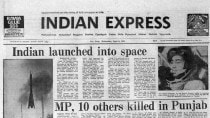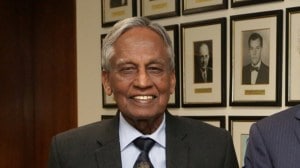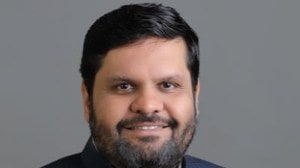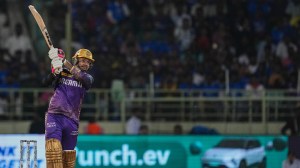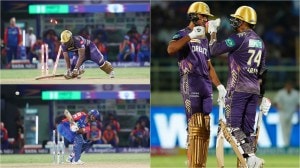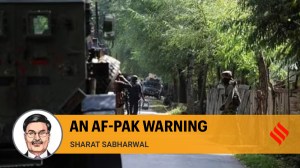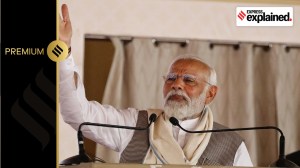- India
- International
The many truths of Katchatheevu that no party wants to acknowledge
Current controversy should be seen as vote-bank politics, with little remorse shown for the loss of Indian territory or regard for the lives of our fishermen and fisherwomen
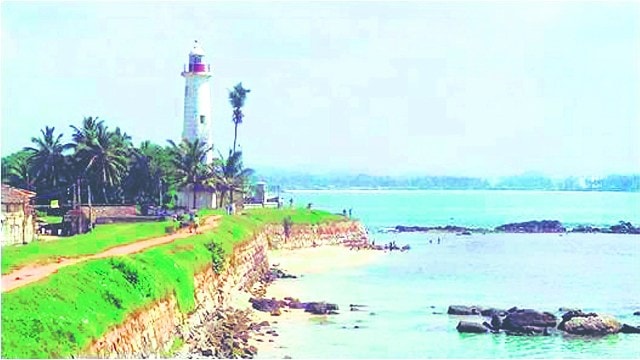 Katchatheevu was ceded by the Congress government with the help of the bureaucracy without taking into consideration the historical, cultural, territorial and political rights of the state of Tamil Nadu, writes Ramu Manivannan. (Express Archives)
Katchatheevu was ceded by the Congress government with the help of the bureaucracy without taking into consideration the historical, cultural, territorial and political rights of the state of Tamil Nadu, writes Ramu Manivannan. (Express Archives)The ceding of Katchatheevu to Sri Lanka in 1974 by the Congress-led Union government is an issue that has been raised and debated by various parties, including the Bharatiya Janata party (BJP), Congress and the Dravida Munnetra Kazhagam (DMK) — mostly as vote-bank politics, with little remorse for the loss of Indian territory or regard for the lives of our fishermen and fisherwomen. The Katchatheevu question has now attracted attention because the current Prime Minister has raked it up, never mind that it could be seen as an electoral gimmick.
Katchatheevu was ceded by the Congress government with the help of the bureaucracy without taking into consideration the historical, cultural, territorial and political rights of the state of Tamil Nadu. Consider the fact that the Indian leadership, even before the agreements of 1974 and 1976, had recognised that India did not have a strong case for sovereignty over the territory despite it being part of the zamindari of the Raja of Ramanathapuram since 1803. Why was there this indifference to the territory in the south, while territories under dispute with neighbours in other parts of the country were considered as occupied or contested?
Politics over justice?
Is Prime Minister Narendra Modi’s view of Katchatheevu as wrongly ceded territorry simply a campaign strategy to generate support for the BJP among the people of Tamil Nadu in the parliamentary elections? Should the Union government revisit the Katchatheevu question if the BJP returns to power because the matter has been raised by none other than the PM himself? Let us remember that the PM has only raised the storm, but has not offered any solution or made any promises. This is a political time for trading charges but not an occasion to resolve the controversy after being in power since 2014.
The political opportunism of the BJP and indefensible arguments of the Congress and DMK are easy to see through for the common people. Another cruel joke related to this controversy is the position of the Ministry of External Affairs (MEA), which says that Katchatheevu lies on the Sri Lankan side of the India-Sri Lanka International Maritime Boundary Line (IMBL) and the affidavit submitted by the MEA in the Madras High Court states that sovereignty over Katchatheevu “is a settled matter”. If this is a “settled” subject and India did not have a strong claim over Katchatheevu then how were the rights of Indian (Tamil) fishermen recognised in the 1974 agreement and how and why was this entitlement withdrawn in the 1976 agreement, without offering a justification?
Acknowledgment without action
S Jaishankar has acknowledged the tragic reality that the ceding of Katchatheevu has resulted in more than 6,000 Indian fishermen being detained and 1175 fishing vessels being seized by the Sri Lankan government in the last 20 years. However, the current government’s position on the issue over the past decade has been in line with the stance taken by previous dispensations — why did the Modi government not raise the matter of Katchtheevu for a public debate before, leave alone commit to change the position on the issue?

There is also the curious dimension of the former diplomats, who served the Congress first family as loyalists for long, cautioning the government that the current controversy can have a huge impact on our bilateral ties with Sri Lanka. Politics is not an end itself but an ever-evolving means to address questions of justice. In a democracy, elections become a process for reviving buried questions and settled matters. In the matter of Katchatheevu, there is more than one truth.
The writer is a Professor and Former Head of the Department of Politics & Public Administration, University of Madras He is currently the Visiting Professor and Community Scholar at the Josef Korbel School of International Studies at the University of Denver, Colorado, USA
EXPRESS OPINION
Best of Express
More Explained
Apr 04: Latest News
- 01
- 02
- 03
- 04
- 05


